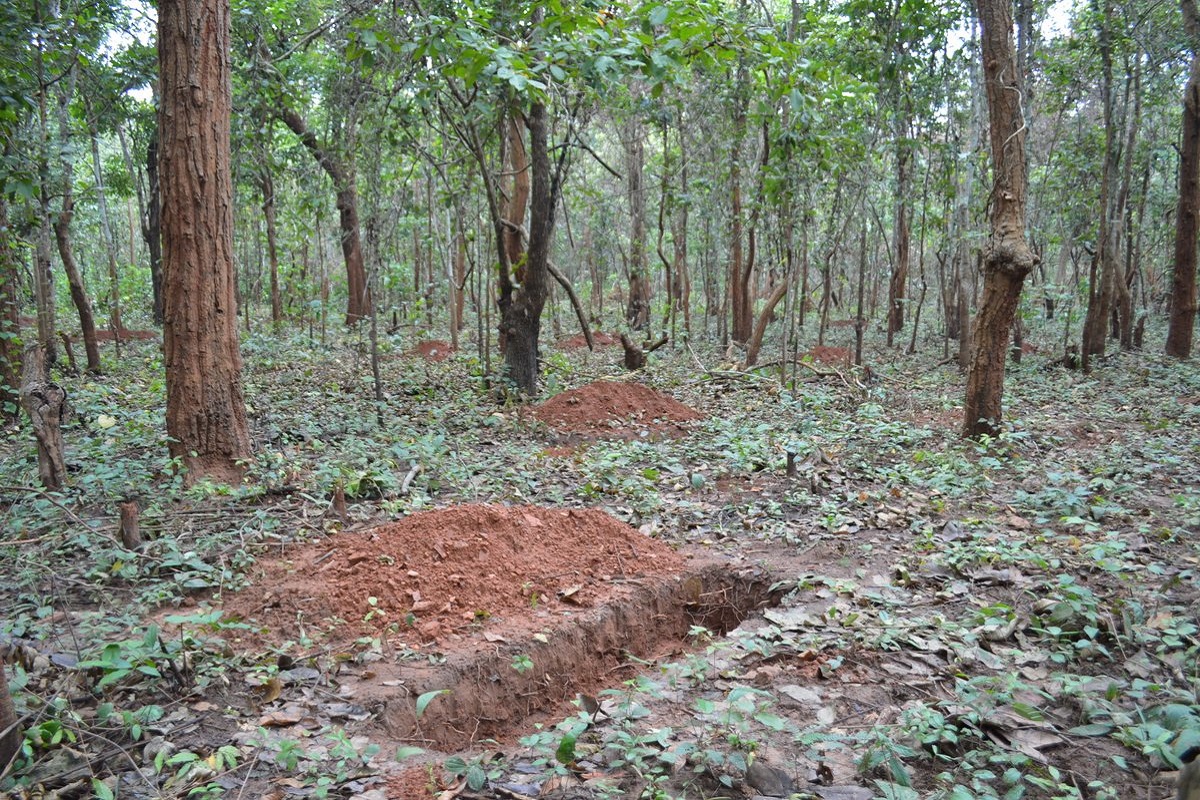Spreading Wings: Two GIB chicks bring cheers to conservationists
There are only around 150 Great Indian Bustards left across the country, including 128 in Rajasthan alone, the Lok Sabha was informed on March 14.
Conservationists have sought a review of the forestry practice of digging pits for moisture augmentation saying that such practice would have adverse effects on the flora fauna.

[Representational Image]
Conservationists have sought a review of the forestry practice of digging pits for moisture augmentation saying that such practice would have adverse effects on the flora fauna.
“The forest department is digging pits in forest areas, presumably for percolation of water. Even though the ostensible objective is water retention for the well being of the trees, this practice needs to be relooked due to the harmful impacts that such pits have on local flora and fauna”, Biswajit Mohanty, secretary of Wildlife Society of Orissa noted in a letter to the Principal Chief Conservator of Forests (Wildlife) & Chief Wildlife Warden, Odisha,
Advertisement
Forest floor plays an important role in the conservation of fauna provided the natural geography and ecology (bushes, small growing trees, creepers etc.) remains intact without artificial interference. It is well known there is a composite and symbiotic relationship between fauna (both micro & macro) and flora of the forest floor. The percolation pits could harm the flora and fauna, Mohanty said seeking the forest department to have a relook at the practice
Advertisement
Since, the pits are dug besides trees, the roots of the tree itself along with the roots of other vegetation are severed thereby disrupting the intake of nutrients and water to the tree and other local flora.
Large mammals like Elephants, Deer, Bison etc. and even cattle can easily twist their legs and break bones if they accidentally fall inside such artificial pits while moving on an otherwise level and unbroken flat forest floor, he wrote adding that there is a bigger risk of breaking legs of herbivores like deer or barking deer or wild boar if they fall in the pits while being chased by predators.
Usually, such pits could get obscured by creepers and bushes and remain concealed posing a danger to unsuspecting humans and cattle that enter the forest and can break their legs.
Such pits also affect the natural regeneration of forests since seedlings growing from seeds that have fallen from mother trees are destroyed when such pits are dug. The impact on reptiles and amphibians is enormous since most are ground-dwelling.
“We suggest that the practise should be abandoned since the perceived moisture benefits do not outweigh the likely irreversible impacts on innumerable numbers of flora and fauna that are sacrificed. Trees and other flora of our forests have grown for thousands of years without the need for manmade water percolation pits. Let this natural practice continue without such harmful artificial interventions”, he concluded.
Advertisement